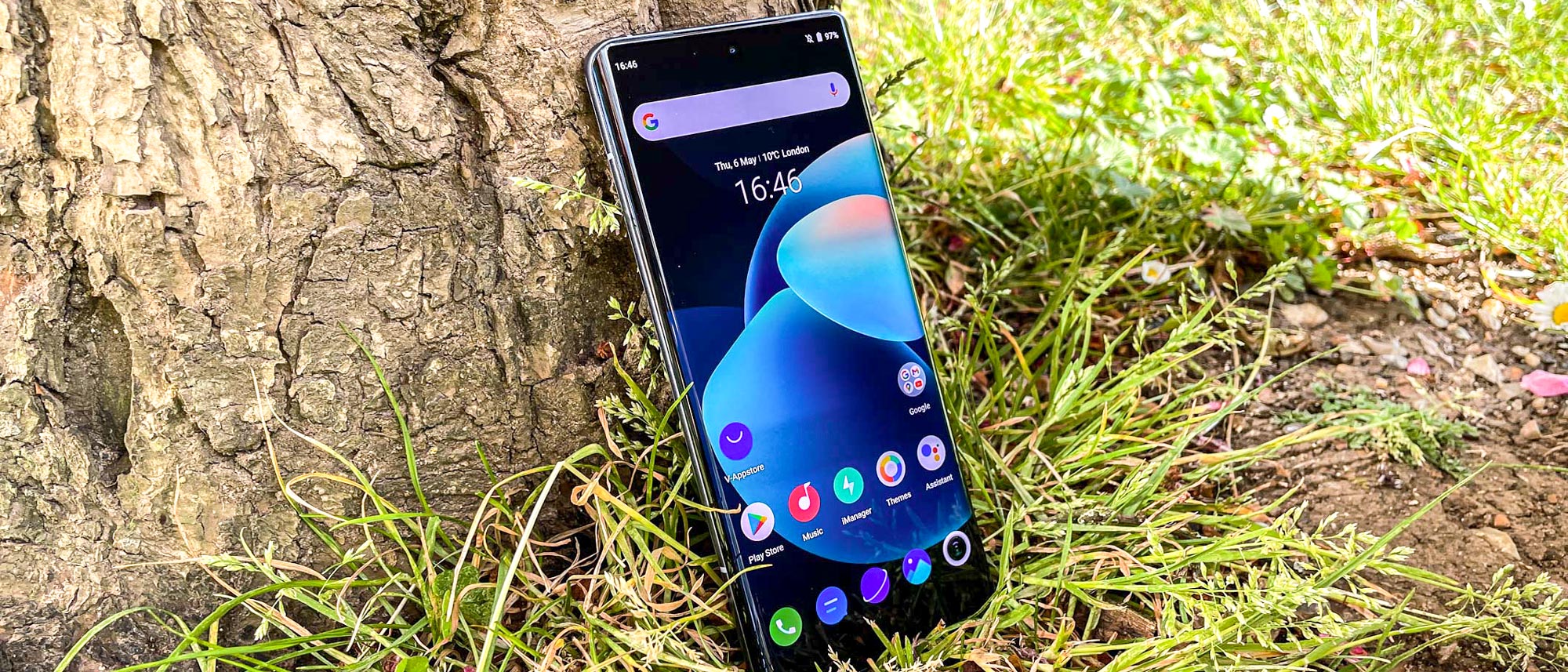Tom's Guide Verdict
Vivo goes in its own direction with the ultra premium Vivo x60 Pro Plus, which pays off when it comes to photography. It’s the unpleasant user experience and the poor availability that cost it a recommendation, though.
Pros
- +
Zeiss-enhanced bokeh and zoom photos
- +
Gimbal-stabilized video
- +
Compact, classy design
Cons
- -
Small battery
- -
Irritating software
- -
Not sold in the U.S
Why you can trust Tom's Guide
Starting price: TBA
Display: 6.56 inches, FHD AMOLED (2376 x 1080)
Refresh rate: 60Hz/120Hz
Rear cameras: 50MP main (f/1.57), 48MP ultrawide (f/2.2), 32MP (f/2.08), 8MP (f/3.4)
Front camera: 32MP
Chipset: Qualcomm Snapdragon 888
RAM: 12GB
Storage: 256GB
Battery: 4,200 mAh
Charging: 55W wired
Operating system: Android 11 with Funtouch OS 11.1
Size: 158.59 × 73.35 × 9.10mm
Weight: 6.7 ounces (191g)
You can’t accuse the Vivo x60 Pro Plus of being a by-the-numbers phone. This top-of-the-range Android handset may seem like other Ultra or Pro phones on the surface, but it boasts some unique tricks that could boost the phone’s appeal, at least for a select audience.
The Vivo x60 Pro Plus comes with a built-in gimbal that delivers smoother video than what you’d see from rival smartphones. Plus, Vivo’s teammates at Zeiss have made sure the phone takes still images just as skillfully.
Sadly, other parts of the Vivo X60 Pro Plus experience don’t stand up so well. Besides that, the fact you plain can’t buy this phone in the U.K. yet, or in the U.S. at all, hurts its broad appeal. Our Vivo x60 Pro Plus review finds a phone you have to appreciate for its technical achievements, even if that doesn’t translate into a purchase.
Vivo x60 Pro Plus review: Price and release date
Vivo phones are sold in the U.K., but the Chinese phone maker has yet to announce availability for the x60 range, including the Pro Plus. Vivo doesn’t operate in the U.S., which means no matter how good this phone is, you’re better off buying a different phone rather than trying to import one.
The last generation, the Vivo x51 5G, started at £749, putting it on par with current phones like the Xiaomi Mi 11. However the x51 used a Snapdragon 765G chipset, which is a step below the Snapdragon 888 found in the x60. Therefore you should expect the X60 Pro Plus’ price to be higher.
There's only a single model of the x60 Pro Plus available, which offers 12GB RAM and 256GB storage.
Vivo x60 Pro Plus review: Design
With a central punch-hole and curved edges on the display, design and feature set of the Vivo X60 Pro Plus looks similar to the Samsung Galaxy S21 Ultra, although Vivo’s phone is much smaller.
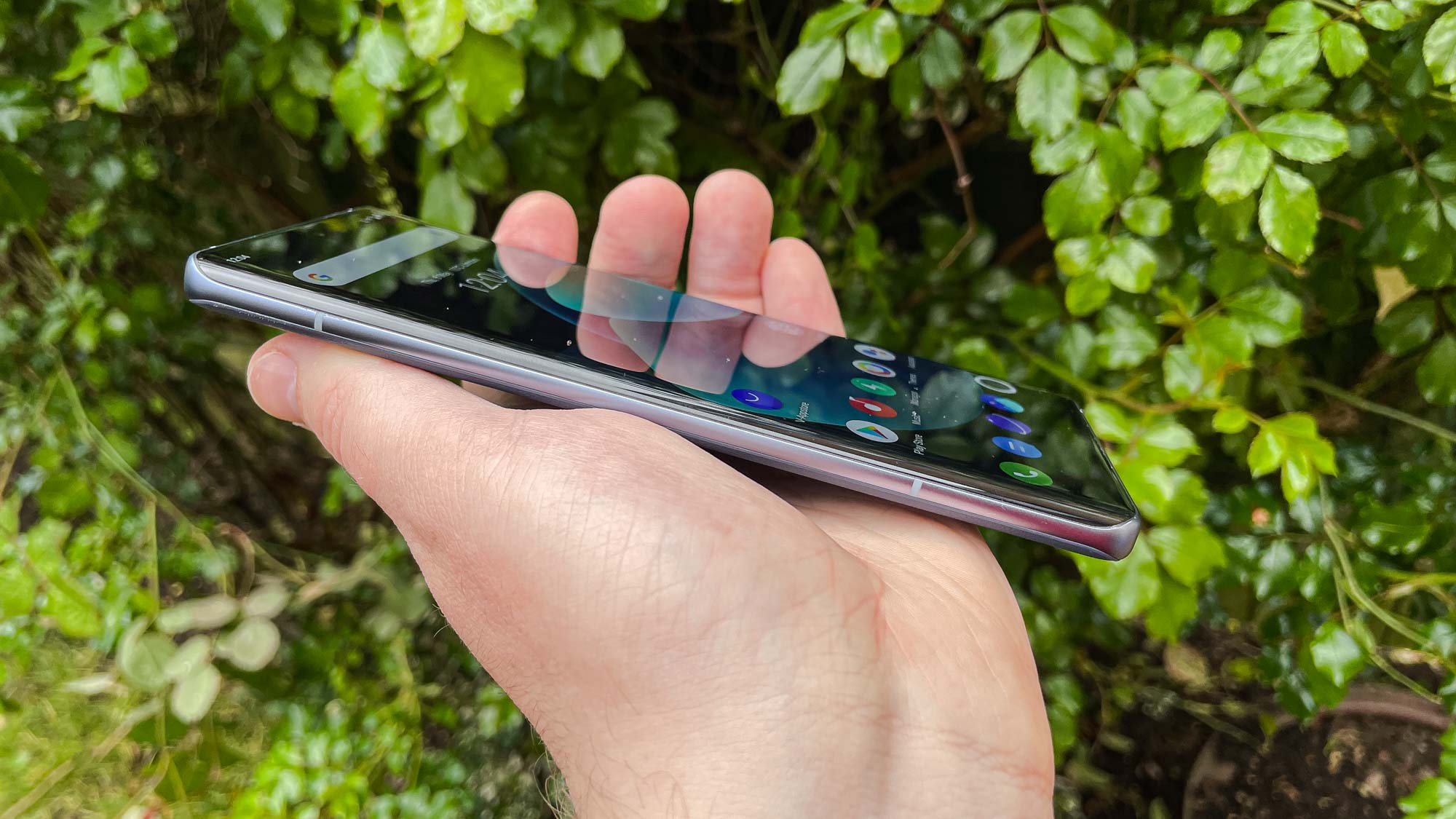
It's more than an ounce lighter than the Ultra, (6.7 ounces compared to 8.1), and about a third of an inch smaller (6.56 inches compared to 6.8 inches). While large phones have their place, it’s good to see Vivo make a range-topping phone that’s a more manageable size.
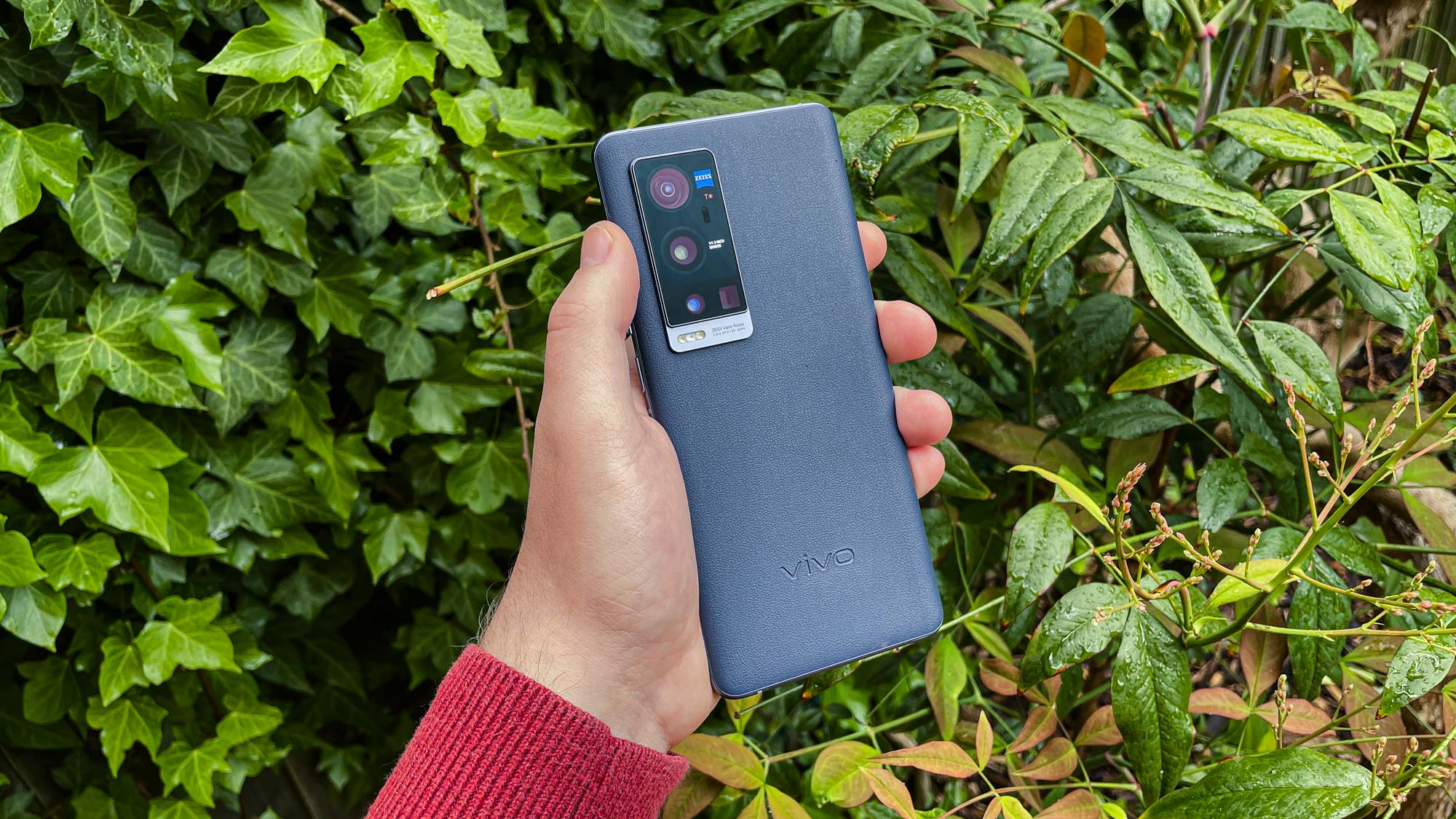
You normally have a choice of either Orange or Emperor Blue vegan leather backs for the x60 Pro Plus, but blue is the only available finish in the U.K. A leather finish is a classy way of differentiating the phone from the average glass-backed flagship, as is the sharp-looking rectangular camera block with its tiny Zeiss badge. It's one of the most mature-looking phones I've tried out this year.
Vivo x60 Pro Plus review: Display
The x60 Pro Plus’ display isn’t quite as big as the 6.8-inch Galaxy S21 Ultra or 6.7-inch OnePlus 9 Pro, but at 6.56 inches, you’ve still got plenty of display to work with.. Vivo’s screen also has a lower resolution than most equivalent phones —FHD instead of QHD.
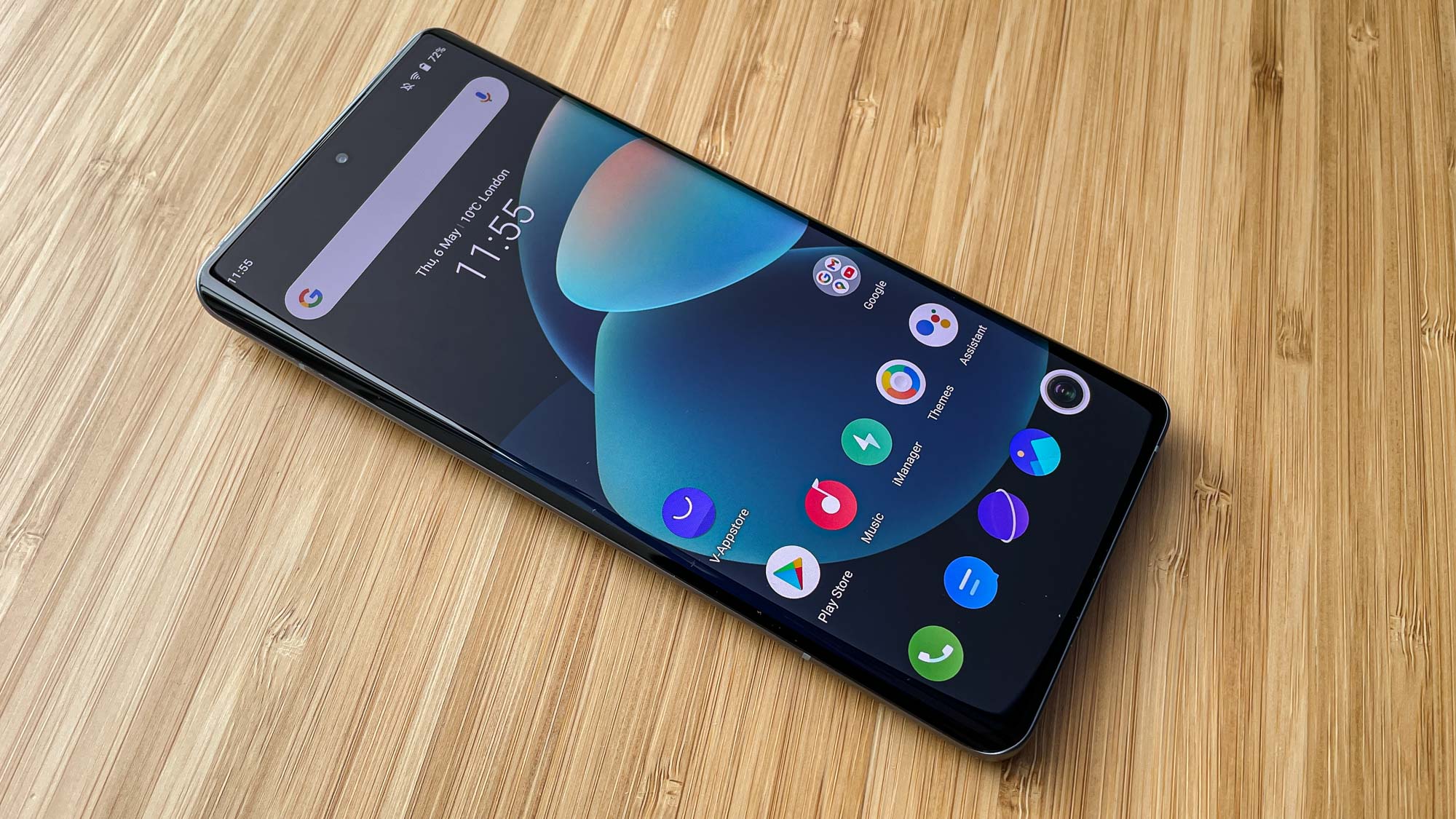
You can choose between 60Hz and 120Hz refresh rate modes, plus a “Smart Switch” option to jump between them to conserve battery. That’s a welcome feature, but it doesn’t compare to the fully variable LTPO displays as you have on the Samsung Galaxy S21 Ultra or the OnePlus 9 Pro.
Watching the trailer for Netflix's The Irregulars showed that the x60 can adeptly show off the show's strange twist on Victorian London, with crisp shadows and brightly colored clothing. The phone’s audio doesn't match up to the visuals, however, as Vivo only fitted the x60 with a single speaker rather than the more common dual-firing set-up you get on most flagship Androids.
Vivo x60 Pro Plus review: Cameras
Cameras are where Vivo wants the x60 Pro Plus to stand out. You get four rear cameras with the x60 — a 50MP main shooter, a 48MP ultrawide lens, a 32MP portrait sensor with 2x zoom and an 8MP telephoto lens. That latter telephoto lens features 5x optical and 60x maximum zoom. There’s a 32MP selfie cam on the phone’s front.
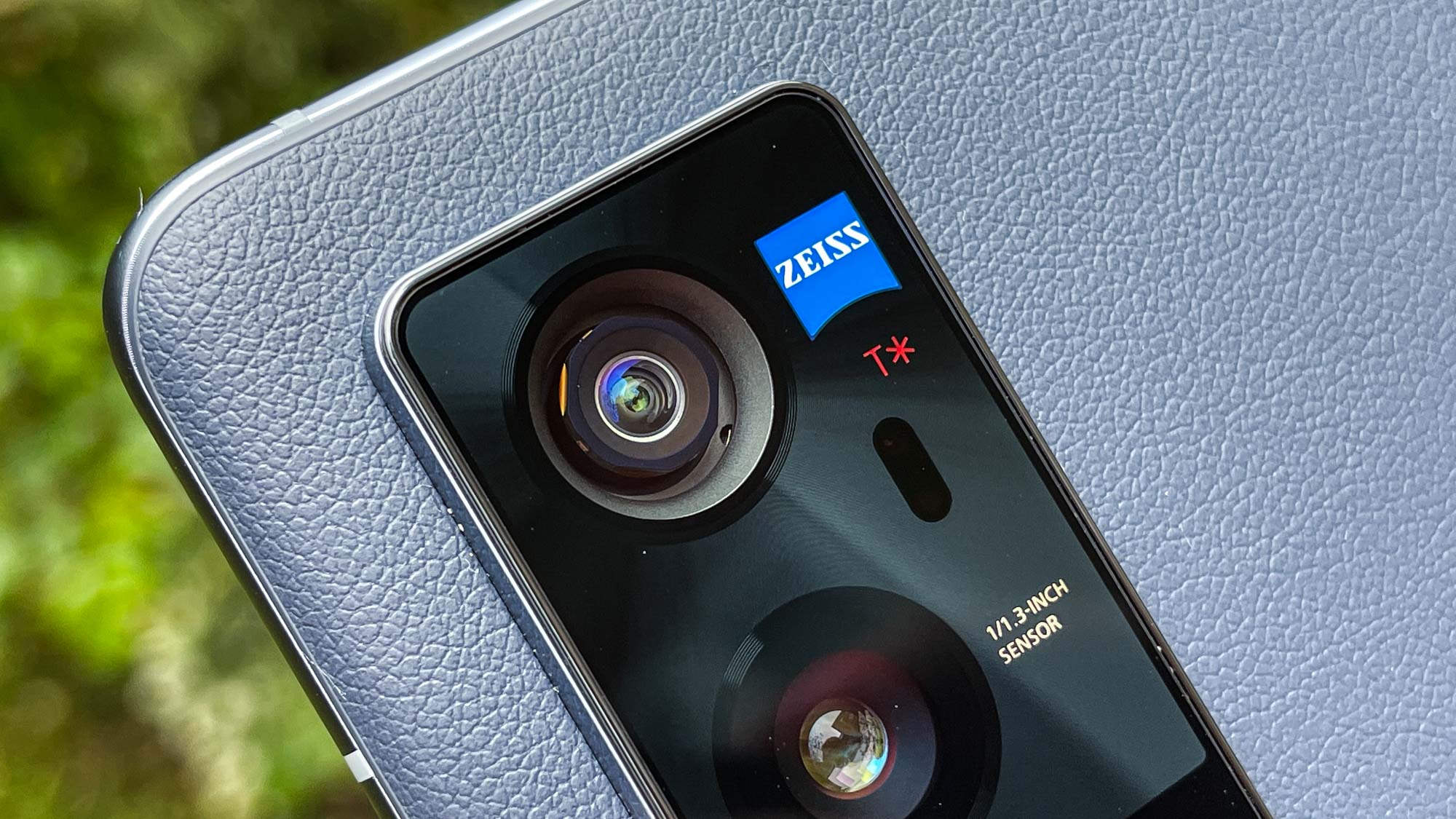
I tested the x60 Pro Plus against the iPhone 12 Pro, starting with a main sensor shot of the Readymoney Drinking Fountain in Regent’s Park. The texture of the marble and granite comes across equally well in both shots, but I dislike how much darker the x60’s image is compared to the iPhone’s.
One of Vivo’s big new features this year is its new partnership with German lensmaker Zeiss. This brings Zeiss’ imaging system to the x60’s cameras along with a T* anti-reflective lens coating, which should help avoid unwanted “ghosting” effects when you have the camera aimed at a bright object.
You can see something is obviously different when comparing these two nighttime shots of Tufnell Park Underground station. The flare of light coming off of the street lamp is much less disruptive in the x60 Pro’s shot, and has a pleasant looking green tinge. However looking at the entire photo, I’d say the iPhone offers a better image thanks to its overall brightness.
I used the ultrawide lenses to take a look inside this hollowed-out log, and found the Vivo offers much better colors, whether it’s the rain-slick exterior or the dry, darkened interior. That makes sense, since not only does the x60 offer more megapixels (48MP to 12MP), its sensor is approximately 40% larger than the iPhone’s, which makes a big difference when it comes to capturing light and color.
The x60’s main telephoto lens offers 5x optical zoom, which I used to peek over the fence into ZSL London Zoo to check out the Bactrian camel enclosure. There is no contest between the two images since the iPhone’s optical zoom maxes out at 2x, and has to use digital zoom to make up the rest, resulting in a lower resolution image.
There’s also the Vivo’s 2x zoom camera. While you can use this for telephoto shots, its stated purpose is for portrait-mode images. I set up a self-portrait with a tripod in my back garden, and the result is the best bokeh effect I’ve ever seen on a smartphone. The iPhone’s image is great when it comes to color, and provides a nice background blur of its own, but this is the x60 Pro Plus’ strongest shot.
The only camera left to look at is the selfie camera. These portrait mode shots show the iPhone is better at picking out the boundary between my head and the sky and trees, making for an overall cleaner image. However I do quite like the natural highlights on the x60’s photo, more so than the flatter image Apple’s post-processing has provided.
Vivo x60 Pro Plus review: Video
The x60 Pro Plus’ party trick comes from the ultrawide sensor’s Gimbal Stabilization 2.0, an evolution of the one found on the Vivo x50. It's meant to act just like the full-size stabilization systems you see used with professional video cameras, only this one’s small enough to fit inside the fairly slim camera block on the x60's back.
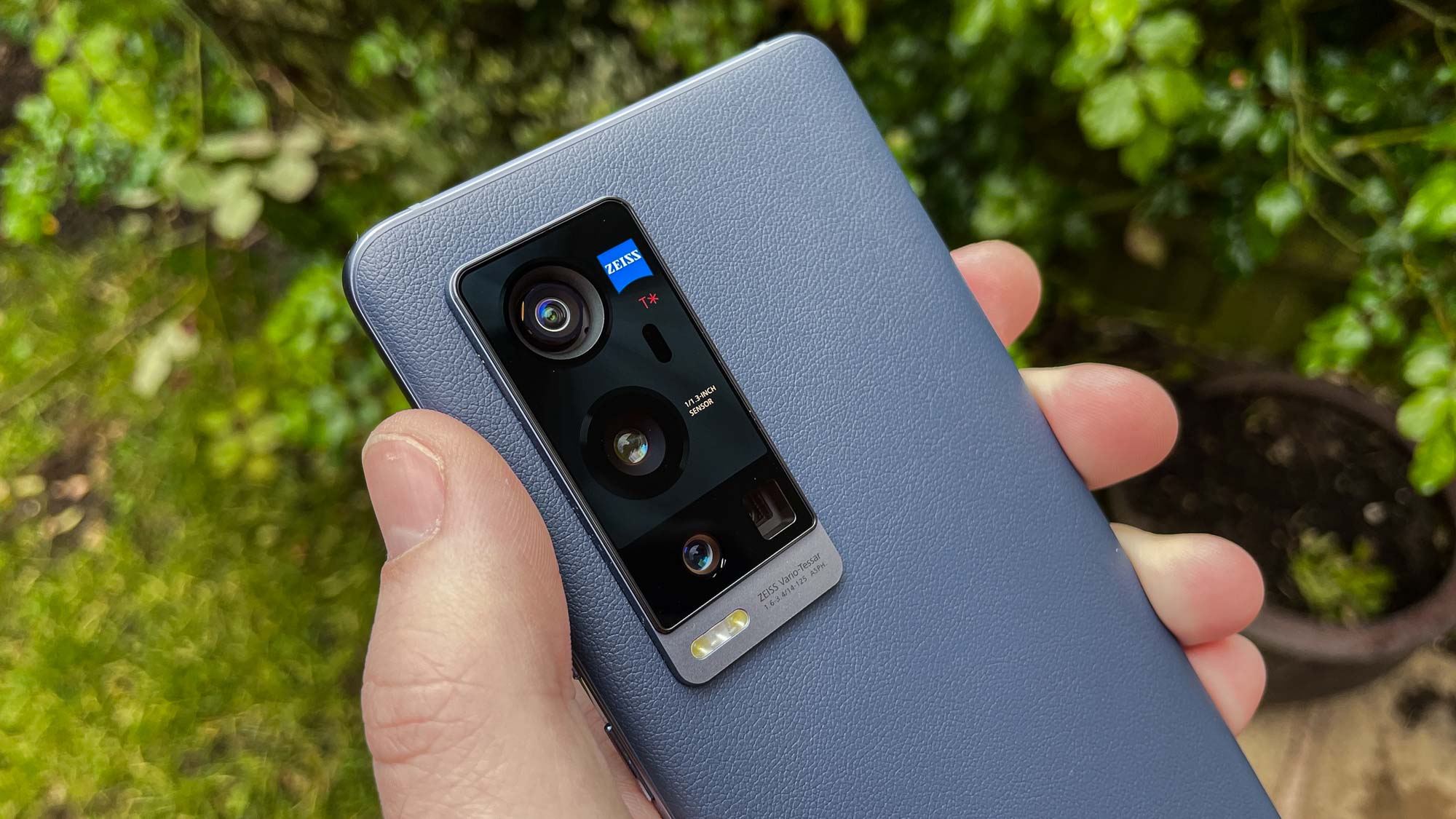
Most flagship phones, including the iPhone 12 Pro, offer optical image stabilization (OIS) on select cameras alongside electronic image stabilization (EIS) on all sensors. A gimbal is essentially OIS on steroids, but the only unfortunate thing is that the gimbal is mounted on the x60 Pro Plus' ultrawide sensor rather than the main sensor. It means you don’t get access to the better stabilization when trying to take normal photos.
To test the image stabilization, I recorded a brief walk through a tree-lined path near the top of Primrose Hill. I noticed the gimbal’s influence quite easily compared to other smartphone videos because the picture in the viewfinder was slow to change direction as the phone tried to keep the image from shaking. It felt like the frame was gently swaying, unlike the equivalent iPhone recording. While the iPhone-shot footage was still acceptably smooth, it more obviously impacted by each footstep.
Trying a sweeping shot from a bridge over the Regent’s Canal, the impact of the x60’s gimbal was less obvious. It’s also here that I noticed that the iPhone produced more vivid color in its video, which is perhaps more of a priority for the average video-taking smartphone user than extra-smooth footage.
All the same, the gimbal is an impressive achievement by Vivo, and its unique place in the market makes the x60 Pro Plus more appealing to smartphone videographers who want their clips to stand out.
Vivo x60 Pro Plus review: Performance
The Vivo x60 Pro Plus should be a top performer. The phone offers the 2021 premium flagship staples of 12GB RAM and a Snapdragon 888 system-on-chip, plus Vivo's secret weapon, extended RAM mode. This allows for 3GB of virtual RAM to be created within the x60's spacious 256GB of storage, giving the phone a boost when required.
All that horsepower looks to have had a modest effect on our benchmarking tests. The x60 Pro Plus managed Geekbench 5 scores of 1,133 single core and 3,756 multi-core, which beats both the Samsung Galaxy S21 Ultra (1,123 and 3,440) and the OnePlus 9 Pro (1,126 and 3,685). Vivo’s phone even beats the iPhone 12 Pro on the multicore test, although Apple’s A14 chip still beats the competition on single core performance (1,585 and 3,669).
Putting the x60 Pro Plus through the 3DMark Wild Life graphics benchmark resulted in a score of 5,712 and an average frame rate of 34.2 frames per second. That’s a little better than the Galaxy S21 Ultra (5,653 and 33.9fps), and a little worse than the OnePlus 9 Pro (5,756 and 34.5fps). It’s far behind the iPhone 12 Pro though (6,618 and 39.0fps).
Vivo x60 Pro Plus review: 5G
Thanks to the built-in modem in the Snapdragon 888 chipset, the x60 Pro Plus has 5G by default. However, the phone only offers compatibility with sub-6GHz frequency bands according to Vivo's official list of supported 5G bands. This won't be a problem for U.K. users, as all carriers currently use this range of bands, but looking at the available bands, only T-Mobile 5G is supported among U.S. options. (Perhaps another reason the phone isn’t likely to reach the U.S.)
Vivo x60 Pro Plus review: Battery and charging
The x60 Pro Plus’ 4,200 mAh battery seems low capacity for an ultimate flagship, even one that’s smaller than many phablets. Running down the battery from 15% to zero by playing YouTube videos took about 3 hours and 51 minutes, which isn’t that long in my experience. It makes sense when you remember the screen’s 120Hz refresh rate taxes the x60 Pro Plus’ battery.
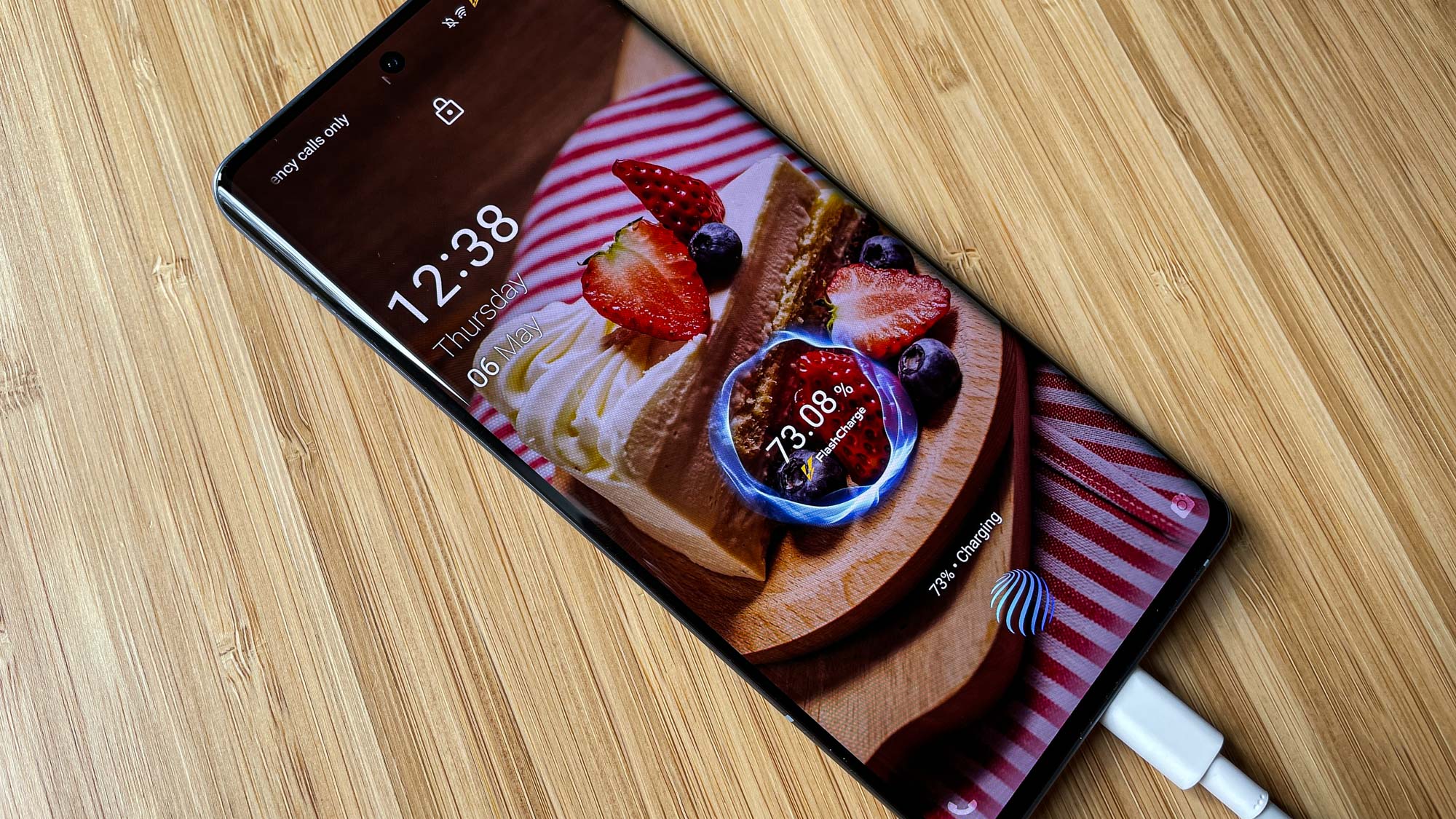
Vivo throws a 55W fast charger in the box, which fills the phone up to 48% in 15 minutes, 80% in 30 minutes and to 100% in 46 minutes. 55W is not the most powerful charger around, but given the smaller capacity of the x60 Pro Plus, it makes sense that you don’t need so many watts to charge it at an acceptably fast speed.
Vivo x60 Pro Plus review: Software
Vivo's Funtouch OS 11 is far from my favorite version of Android 11. There are many bloatware apps plus Vivo’s own V-Appstore, which not only regularly bugs you to use it, but then notifies you every time it completes an update. It’s very annoying.
The other key part of the user experience, the haptic feedback, is weak. Tapping the keys feels nice and poppy but don't have the strength that you get on the best systems like those in the Google Pixel 5 or the OnePlus 9 series.
Vivo x60 Pro Plus vs. Vivo x60 Pro vs. Vivo x60
Vivo includes two other models in the x60 range, the base X60 and the Pro version. The biggest differences between the three models involves the number of cameras, the charging speed and the chipsets. Curiously, the standard x60 gets the largest battery, although it is the only member of the range without a gimbal camera.
| Row 0 - Cell 0 | Vivo x60 | x60 Pro | x60 Pro Plus |
| Display | 6.56-inch AMOLED, FHD (1080 x 2376) | 6.56-inch AMOLED, FHD (1080 x 2376) | 6.56-inch AMOLED, FHD (1080 x 2376) |
| Refresh rate | 60Hz/120Hz | 60Hz/120Hz | 60Hz/120Hz |
| Rear cameras | 48MP main, 13MP ultrawide, 13MP telephoto with 2x optical zoom | 48MP gimbal-stablized main, 13MP ultrawide, 13MP telephoto with 2x optical zoom | 50MP main, 48MP gimbal-stabilized ultrawide, 32MP portrait telephoto with 2x optical zoom, 8MP telephoto with 5x optical zoom |
| Front camera | 32MP | 32MP | 32MP |
| Chipset | Snapdragon 870 | Snapdragon 870 | Snapdragon 888 |
| RAM | 8GB/12GB | 12GB | 12GB |
| Storage | 128GB/256GB | 256GB | 256GB |
| Battery | 4,300 mAh | 4,200 mAh | 4,200 mAh |
| Charging | 33W wired | 33W wired | 33W wired |
What doesn’t change is the overall size of the phones, including screen size, resolution and refresh rates. While the design of each phone is almost identical, the standard and Pro models use glass backs rather than the Pro Plus' vegan leather, and both offer alternative colors to the Pro Plus pictured in this review.
Vivo x60 Pro Plus review: Verdict
Although not the most well-rounded Android phone we've seen, there are still reasons why U.S. smartphone shoppers ought to be a little jealous of the U.K. and other countries where the Vivo x60 series is offered.
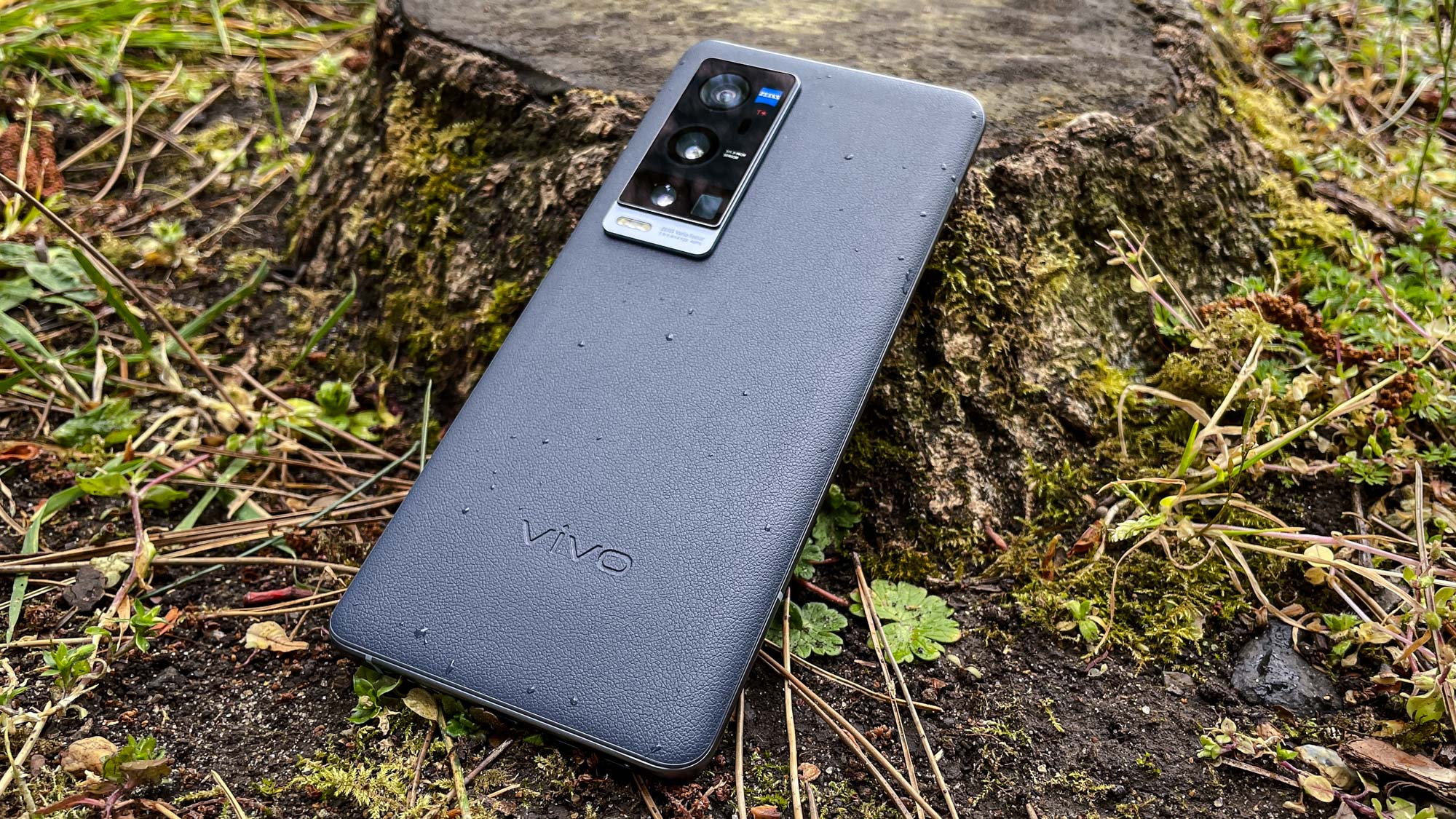
Unfortunately, the x60 Pro Plus’ total photo package doesn’t quite match up to the best camera phones, and it’s far less pleasant to use than other Android devices because of its cluttered custom launcher and below-average battery life.
However, the gimbal system on the Vivo x60 Pro Plus is really quite something, and would be a big asset for any smartphone videographer. Its dual telephoto lenses do a great job for long-distance and portrait shots, too.
I like how unique those headline features are, in what can feel like a homogenous Android flagship market. However this time, the Vivo x60 Pro Plus can’t break out past its niche appeal.

Richard is based in London, covering news, reviews and how-tos for phones, tablets, gaming, and whatever else people need advice on. Following on from his MA in Magazine Journalism at the University of Sheffield, he's also written for WIRED U.K., The Register and Creative Bloq. When not at work, he's likely thinking about how to brew the perfect cup of specialty coffee.
